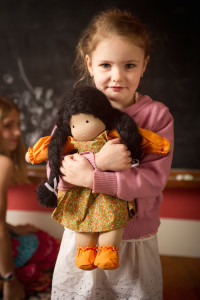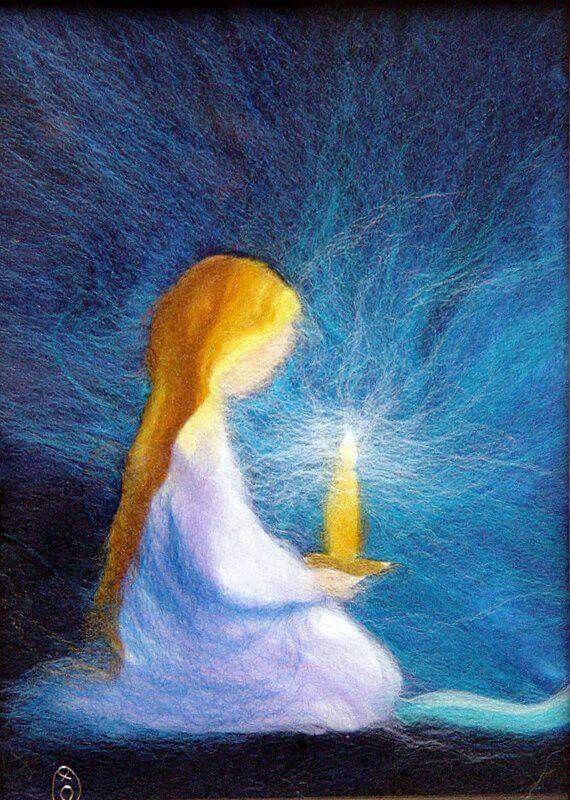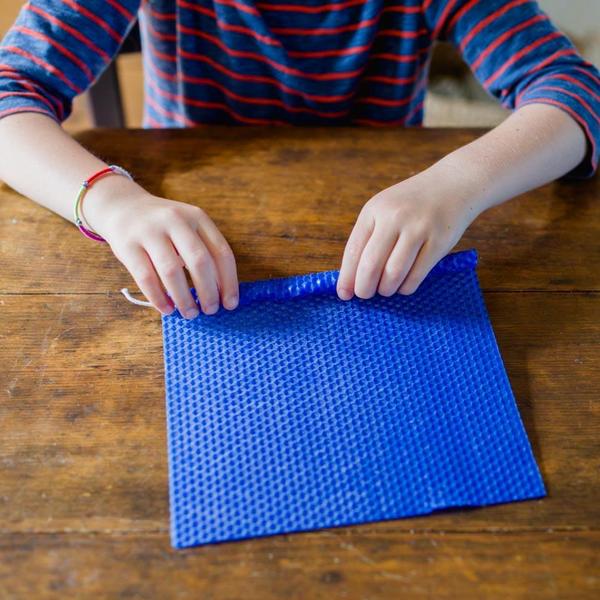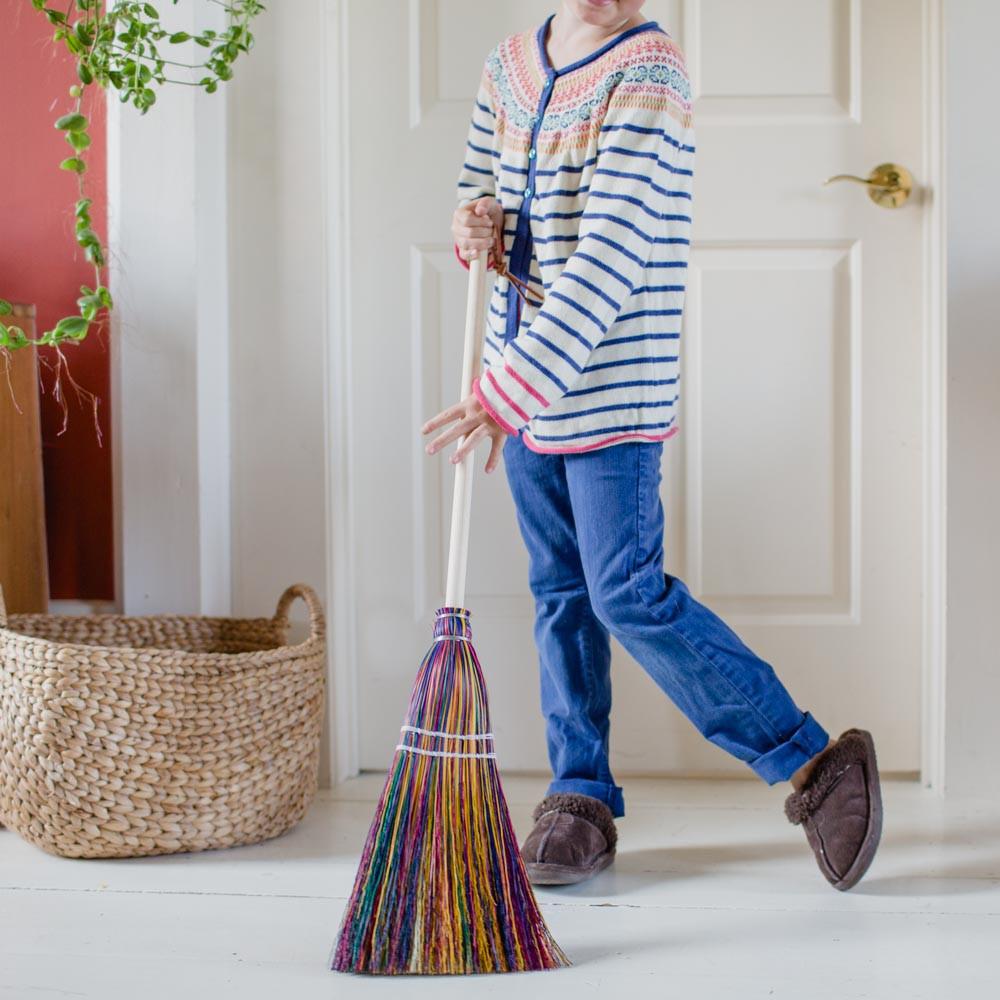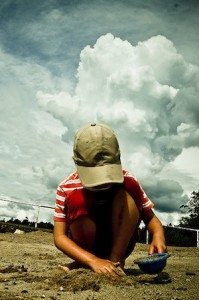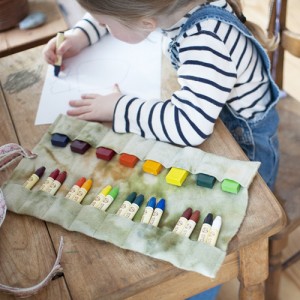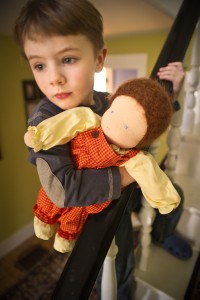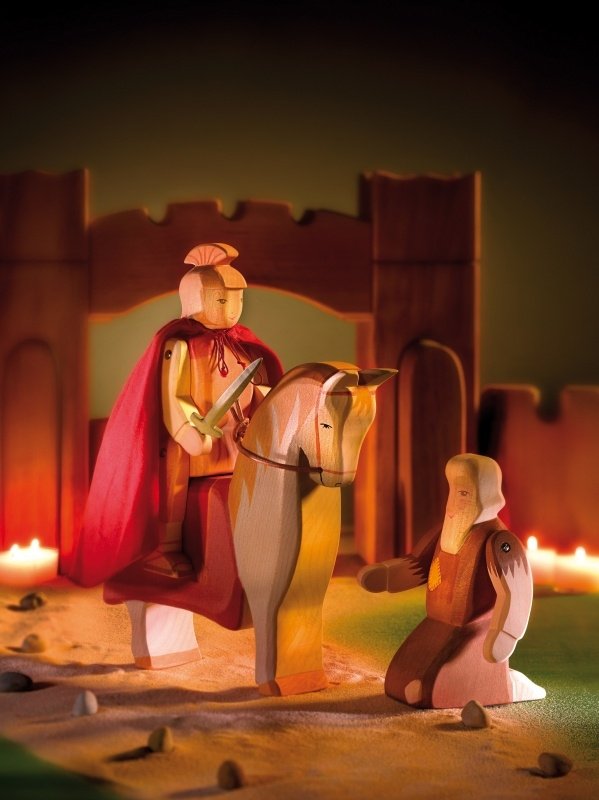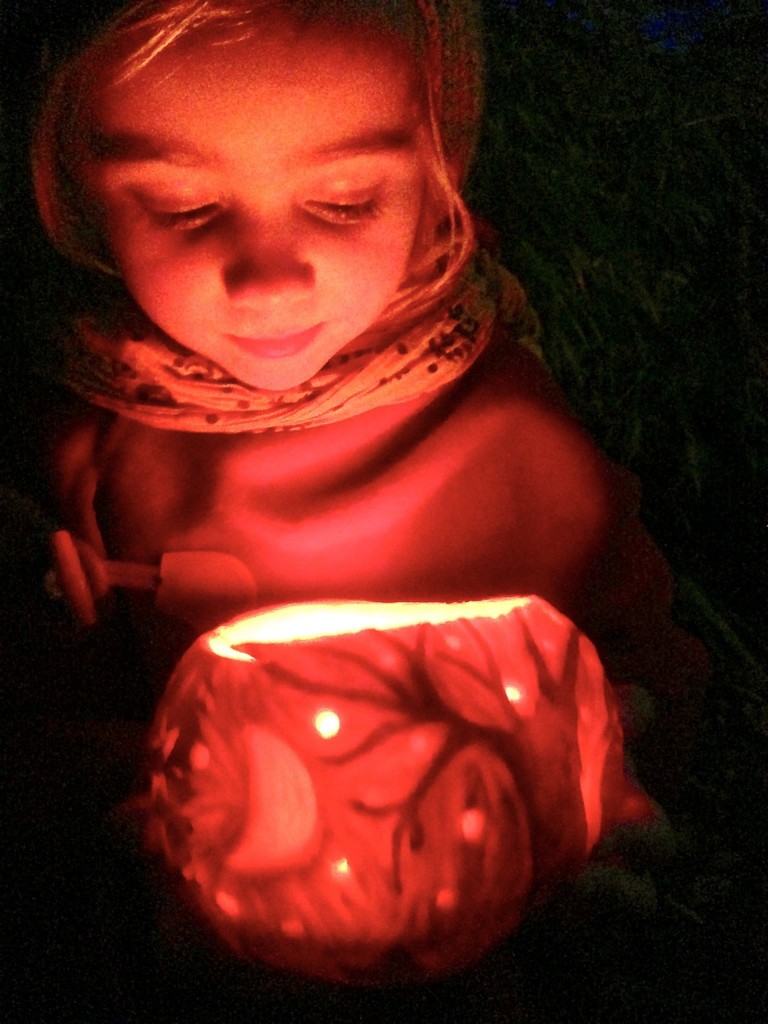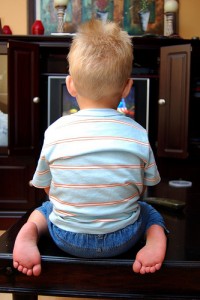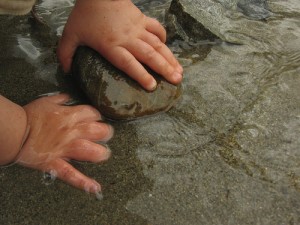Birthdays are always a cause for celebration in a Waldorf early childhood classroom, and were one of my favorite traditions as a Waldorf kindergarten teacher.
Rituals and traditions allow children to experience the “rhythm of the year,” and celebrating a birthday honors the child’s place in the family and in the world at large.
In this week’s Sunday with Sarah video, I share my version of the Waldorf birthday story and demonstrate how to use a Waldorf Wooden Birthday Ring with the story. While the birthday story can vary from teacher-to-teacher, the story is usually about a child looking longingly down on the earth from the heavens and choosing to cross the “rainbow bridge” to join his or her parents on earth.
Another version of this story can be found in the book Beyond the Rainbow Bridge by Barbara Patterson. The picture book Little Angel’s Journey offers another version of the story with beautiful illustrations by Dzvinka Hayda.
A transcript of the birthday story I tell in this video can be found below.
And if you want to be sure to catch all future videos, be sure to visit my Sunday with Sarah YouTube channel and SUBSCRIBE!
Happy Birthdays!

TRANSCRIPTION:
Once upon a time, more than six years ago, Abbie wasn’t here on the earth at all. Oh, no. She was up in heaven with her guardian angel. She had a lovely time there. She could roll around, she could dance, she could hop first on one foot and then on the other without falling at all.
One day, Abbie’s angel gave her a ball made of real gold. Abbie loved to play with her golden ball. She would throw it high up into the air and catch it again and she could toss it from one hand to the other without dropping it even once. Then, one day, when Abbie was in a very strange and curious sort of mood, she wanted to see how far she could throw that golden ball. So she picked it up, felt its weight in her hand at her shoulder, aimed, and threw that ball just as far as she could. Well, she threw it so far that it disappeared right out of sight. Abbie searched here, there, and everywhere, but the ball was nowhere to be found.
But then suddenly, Abbie saw something shining among the clouds, and lo and behold, there was her golden ball. As she reached for it, the clouds parted and Abbie saw something beautiful. She caught sight of the earth and there she saw oceans and mountains and blue sky and trees. And as she looked even closer, she saw a little red farmhouse with a woman working in the garden and she saw a man with kind and loving eyes busy fixing things around the house. The woman was singing “Oh, how happy I would be if a child would come to me.” And she saw three little Corgi dogs barking happily and running around the yard. And as soon as Abby saw the man and the woman she wanted to go down to earth to be with them, to be their little daughter.
“Look!” said Abbie to her Guardian Angel. “May I go and visit them?”
“Yes,” said her Guardian Angel. “Yes, you may, but first we will go on a very long walk. Take my hand and we shall go.”
First, Abbie and her Angel visited the house of the Sun. The Sun gave Abbie the gift of courage and tucked it into her heart. “This courage,” said the Sun, “will give you strength when life is difficult.” Abbie thanked the Sun.
Next, they visited the house of the Moon. The Moon gave Abbie the gift of wisdom and tucked it under each of her feet. It felt just like a pair of soft slippers. Abbie thanked the Moon.
Next, they traveled past many, many Stars and each one winked at Abbie as she passed by. Then one Star, Abbie’s own very special Star that still shines in the heavens every night, touched her lightly on the eyes and said “Here is the gift of the twinkle in your eye, that you may always see the joy in life.” Abbie thanked the Star.
Then Abbie’s Angel led her through the Starry Gates to the Rainbow Bridge. The Sun and the Moon and the Stars sang her name. “Remember, I will always be with you during your journey on the earth,” said her Angel. Then Abbie slid over the Rainbow Bridge, down, down to the earth.
A kind and gentle lady with a beautiful smile and warm brown eyes took the tiny child and tucked her in a special place under her heart where she carried her for many days and many weeks and many months until one day she held a beautiful baby girl in her arms.
“Oh, look!” said her Mother and Father. “She is the most beautiful gift of all. We shall call her Abigail Lucy Reed, for that is the very best name for her.”
During her first year on earth, Abbie learned to do many, manythings. She learned to smile and to roll over, and then she learned to sit up by herself
and later pull herself up to stand. She loved music and her favorite toys were a little wooden rattle with a bell in it and her favorite teddy bear. And then the baby, who wasn’t quite tiny anymore, had her first birthday and she turned one year-old.
Well, during the year that Abbie was one year-old, she learned to do many more things. She took her first steps when she was 13 months-old and walked right over to her Grandpa. She also said her first word which was “horse” but it came out sounding more like “herse.” Abbie’s grandparents came to visit from Florida that year. And then, after another trip around the Sun, Abbie had another birthday and turned two
years-old.
Well, during the year Abbie was two, she took a big family trip to a wedding in Vermont. While Abbie and her family were in Vermont, they visited the Morgan Horse Farm and Cabot Cheese Factory. Abbie loved the garlic cheese and happily munched. While she was two, Abbie spent much time with her Mom, playing, drawing and reading, but Abbie especially loved playing with her horses. She took care of her riding rocking horse, lovingly grooming her and shoeing her every day. Then Abbie had another birthday and was now three years-old.
During the year that Abby was three, she rode her first horse, Mercedes. It was love at first sight. Abbie placed daisies in her hair and in the mane of Mercedes while riding her. That was the year she started ballet lessons which she still loves and continues. Then, Abbie had another birthday and turned four years-old.
When Abbie was four, she was able to lead a miniature horse named Midnight to her grandparent’s camp from a neighbor’s house, with her Mummy following close behind. Abbie continued to love horses and her ballet lessons. Then, Abbie had another birthday and turned five years-old.
Well, during the summer that Abbie was five, she learned to ride her two-wheel bike with training wheels. She also learned to climb a tree all by herself. And in the fall, when she was still five, she joined Miss Sarah’s kindergarten class and met Miss Sarah and Miss Jess and all of you, her friends here, for the first time.
Now, today is February 20th and Abbie is again celebrating a birthday and today Abbie is
6 years-old.
[SUNG]
We wish you a happy birthday
A joyous and celebrated birthday
To our dear Abbie
May you have a long, long life!

